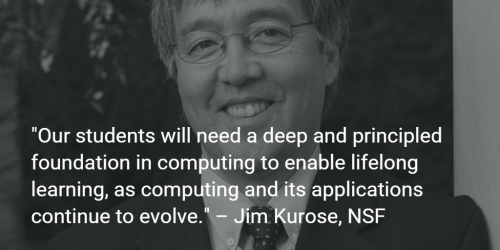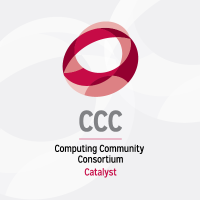Kurose’s Take on Booming Enrollments

Check out this great article on booming enrollments in computer science by Jim Kurose, current Assistant Director for NSF CISE and former CRA Board Member:
In many colleges and universities across the country, computer science classes are bursting at the seams!
According to the Computing Research Association (CRA)’s Taulbee Survey, the number of newly declared computer science (CS) and computer engineering (CE) majors at more than 100 research universities surveyed reached an all-time high two years ago (the most recent data available), and has undoubtedly increased further since then.
The Taulbee Survey and ACM’s annual Survey of Non-Doctoral-Granting Departments in Computing both indicate an anticipated growth in enrollment of between 15 and 20 percent annually. At my own university—the University of Massachusetts Amherst—the number of computer science majors is now approaching twice its previous high. We’ve read in the popular press that introductory computing has become the most popular course on a number of campuses.
At the CRA’s Snowbird conference last year, CS leaders debated whether this dramatic increase of interest is a wave that will crest and recede, or a “sea change” representing a new norm. The answer to this important question involves at least three important converging trends.
Certainly, the job market for newly minted computer science (CS)/computer engineering (CE) majors appears excellent. The US Bureau of Labor Statistics predicts that more than half of the new jobs in 2012 through 2022, across all of science, technology, engineering and math (STEM), will be in computer occupations. And starting salaries for those with CS/CE bachelor’s degrees have consistently been among the highest across all majors. There’s also a tangible sense of excitement and opportunity among our majors about their careers and the impact of their work.
…
Kurose continues with his view: “But I think that the bright prospects for students in our traditional computer science programs are a piece of the picture, and why I believe we’ll be seeing a “sea change” rather than a wave.”
Click here to read the full article.


